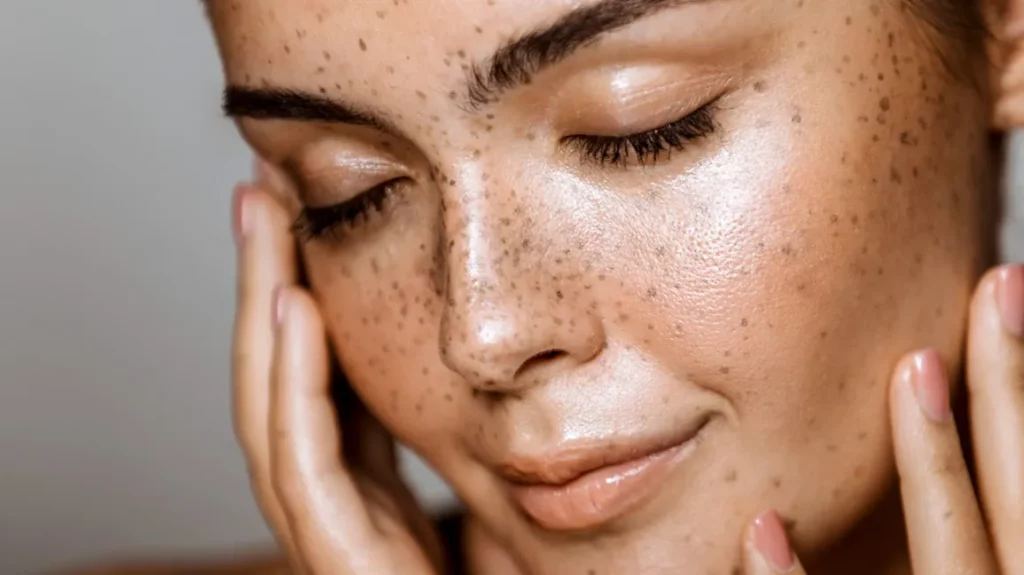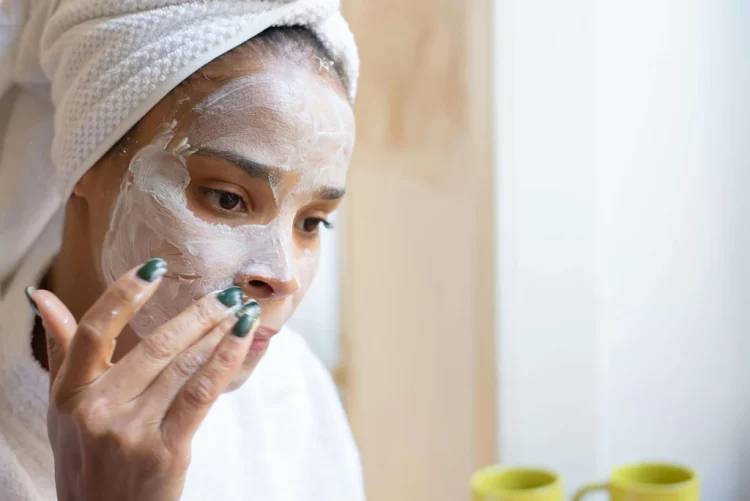Your skin and hair are reflections of your overall health, and diet plays a pivotal role in maintaining their health, appearance, and vitality. Nutrition influences various physiological functions that directly impact how your skin looks, how your hair grows, and how both respond to environmental factors. This article will explore how specific nutrients in your diet can improve hair and skin health, the relationship between nutrition and common hair and skin issues, and provide tips for eating your way to a healthier, more vibrant appearance.
1. The Connection Between Nutrition and Skin Health
Healthy skin begins with proper nutrition. Your skin, the body’s largest organ, is made up of cells that need the right nutrients to stay strong, hydrated, and youthful-looking. Many nutrients support the skin’s structure, protect it from environmental damage, and aid in its natural regeneration process.
1.1 Key Nutrients for Healthy Skin
- Vitamin C: This powerful antioxidant is essential for collagen production, which helps keep the skin firm and youthful. Vitamin C also helps protect the skin from oxidative stress and UV damage. Foods like citrus fruits, bell peppers, and strawberries are rich in vitamin C.
- Vitamin A: Retinol, or vitamin A, promotes cell turnover, helping to prevent clogged pores and maintain smooth, radiant skin. It also has anti-aging properties, stimulating collagen production. Carrots, sweet potatoes, and dark leafy greens are great sources of vitamin A.
- Vitamin E: Vitamin E helps protect the skin from damage caused by free radicals, and its moisturizing properties help improve skin texture. Sources of vitamin E include almonds, sunflower seeds, and avocado.
- Omega-3 Fatty Acids: These healthy fats are essential for keeping the skin hydrated and plump. Omega-3s also help fight inflammation, which can contribute to skin issues like acne and eczema. Fatty fish like salmon, chia seeds, and walnuts are rich in omega-3s.
- Zinc: Zinc is crucial for wound healing, skin regeneration, and controlling oil production, making it important for acne prevention. Foods like pumpkin seeds, chickpeas, and oysters are good sources of zinc.
- Biotin: Biotin, a B-vitamin, plays an important role in maintaining skin health by supporting the body’s production of keratin, a protein found in the skin, hair, and nails. Egg yolks, almonds, and sweet potatoes are rich in biotin.
1.2 Impact of Hydration on Skin
Water is essential for maintaining skin hydration, elasticity, and overall health. Dehydration can lead to dry, flaky skin, and fine lines may become more visible. Drinking sufficient water and consuming water-rich foods like cucumbers, watermelon, and celery can help keep your skin plump and glowing.
1.3 The Role of Antioxidants in Skin Aging
Antioxidants help neutralize free radicals that can damage skin cells and accelerate the aging process. A diet rich in antioxidants helps protect the skin from oxidative stress caused by environmental factors like pollution and UV rays. Antioxidant-rich foods include berries, green tea, dark chocolate, and colorful vegetables.
2. Diet and Hair Health: How What You Eat Affects Your Locks
Just like skin, hair health is deeply influenced by your diet. Hair requires specific nutrients to grow, stay strong, and maintain its shine. Nutritional deficiencies can lead to hair thinning, hair loss, and dull hair.
2.1 Key Nutrients for Healthy Hair
- Protein: Hair is made primarily of keratin, a protein, so it’s essential to consume enough protein to support hair growth and strength. Lean meats, poultry, fish, eggs, beans, and lentils are excellent sources of protein.
- Iron: Iron deficiency is one of the leading causes of hair loss, as it can disrupt the oxygen flow to hair follicles. Good sources of iron include red meat, spinach, lentils, and fortified cereals.
- Vitamin D: Low levels of vitamin D have been linked to hair thinning, particularly in conditions like alopecia areata. Vitamin D helps stimulate hair follicles and supports hair growth. Sunlight is the best source of vitamin D, but it can also be found in fatty fish and fortified foods.
- B-Vitamins: B-vitamins, particularly B12, B6, and folate, are important for the creation of red blood cells that nourish the hair. They also support the health of hair follicles, promoting hair growth. Foods like whole grains, leafy greens, and eggs are rich in B-vitamins.
- Zinc: Just as zinc supports healthy skin, it also plays a crucial role in hair growth and repair. Zinc helps maintain the health of hair follicles and promotes the production of keratin. Foods like oysters, pumpkin seeds, and nuts are excellent sources of zinc.
2.2 How Essential Fatty Acids Impact Hair
Healthy fats, particularly omega-3 fatty acids, keep the scalp hydrated and nourished, which promotes shiny, healthy hair. These fats also help reduce inflammation, which can lead to hair loss. In addition to omega-3s, omega-6 fatty acids, found in vegetable oils, are also important for hair growth and overall hair health.
2.3 Biotin for Strong Hair
Biotin is often recommended for improving hair strength and reducing hair loss. Biotin enhances the production of keratin, improving hair elasticity and preventing breakage. A biotin deficiency can result in brittle hair, thinning, or hair loss. Foods rich in biotin include eggs, nuts, and avocados.
3. Diet and Common Skin Conditions
Certain skin conditions are often linked to dietary choices. For example, acne, eczema, psoriasis, and premature aging can be exacerbated by specific foods, while others may offer relief or help prevent flare-ups.
3.1 Acne and Diet
While acne is often triggered by hormonal fluctuations, poor diet can play a role in aggravating the condition. Diets high in processed foods, sugars, and dairy have been associated with acne flare-ups. Conversely, foods rich in antioxidants and omega-3s, such as leafy greens, berries, and fatty fish, can help fight inflammation and reduce acne symptoms.
3.2 Eczema and Psoriasis
Eczema and psoriasis are inflammatory skin conditions that can be worsened by an inflammatory diet. Avoiding foods that promote inflammation—such as processed meats, refined carbohydrates, and excessive sugar—can help reduce flare-ups. A diet rich in anti-inflammatory foods, such as fatty fish, nuts, and turmeric, may offer relief.
3.3 Premature Aging
A diet high in antioxidants can help combat premature aging by protecting the skin from oxidative stress. Foods like blueberries, spinach, and dark chocolate are rich in antioxidants and can help protect the skin from damage caused by free radicals, preventing premature wrinkles and fine lines.

4. Foods to Include in Your Diet for Healthier Skin and Hair
The following are some of the best foods to promote healthy, glowing skin and strong, shiny hair:
4.1 Fatty Fish
Salmon, mackerel, and sardines are rich in omega-3 fatty acids, which nourish the skin and scalp, reduce inflammation, and promote hair growth.
4.2 Leafy Greens
Spinach, kale, and other leafy greens are packed with vitamins A, C, and K, which promote collagen production, protect the skin from damage, and support healthy hair growth.
4.3 Avocados
Avocados are an excellent source of healthy fats, vitamin E, and biotin, all of which nourish the skin, promote hydration, and protect against oxidative stress.
4.4 Nuts and Seeds
Nuts like almonds and walnuts, as well as seeds like chia and flaxseeds, are rich in omega-3s, zinc, and vitamin E, all of which support skin hydration and healthy hair growth.
4.5 Berries
Berries are rich in antioxidants, particularly vitamin C, which is essential for collagen production and skin regeneration. Berries also have anti-inflammatory properties that can help reduce skin irritation and acne.
4.6 Sweet Potatoes
Sweet potatoes are a great source of beta-carotene, a precursor to vitamin A, which helps promote cell turnover and prevents dry, flaky skin.
4.7 Eggs
Eggs are packed with biotin and protein, both of which support hair strength and growth. They also contain zinc and selenium, essential for maintaining healthy skin.
5. Lifestyle Habits for Healthy Skin and Hair
While diet plays a major role in skin and hair health, other lifestyle habits also contribute significantly to your appearance. Along with a nutritious diet, maintaining a balanced lifestyle can enhance your skin and hair.
5.1 Regular Exercise
Exercise increases blood circulation, which helps deliver oxygen and nutrients to the skin and hair follicles. This promotes healthy hair growth and helps the skin look fresh and radiant.
5.2 Quality Sleep
Adequate sleep is essential for skin repair and regeneration. During sleep, the body repairs damaged cells, including those in the skin and hair follicles, ensuring you wake up with healthier, more rejuvenated skin and hair.
5.3 Stress Management
Chronic stress can lead to a variety of skin issues, including acne, eczema, and hair loss. Managing stress through meditation, yoga, or simple relaxation techniques can improve both skin and hair health.
6. Conclusion: A Holistic Approach to Healthy Skin and Hair
Your diet directly impacts your skin and hair health, and a balanced, nutrient-rich diet can lead to glowing skin and strong, shiny hair. Incorporating key vitamins, minerals, and healthy fats into your daily meals is essential for promoting skin hydration, collagen production, and healthy hair growth. Additionally, a holistic approach that includes proper skincare, regular exercise, stress management, and adequate sleep will further enhance your skin and hair’s health. By taking care of your body from the inside out, you can achieve radiant, youthful skin and beautiful, strong hair.












































